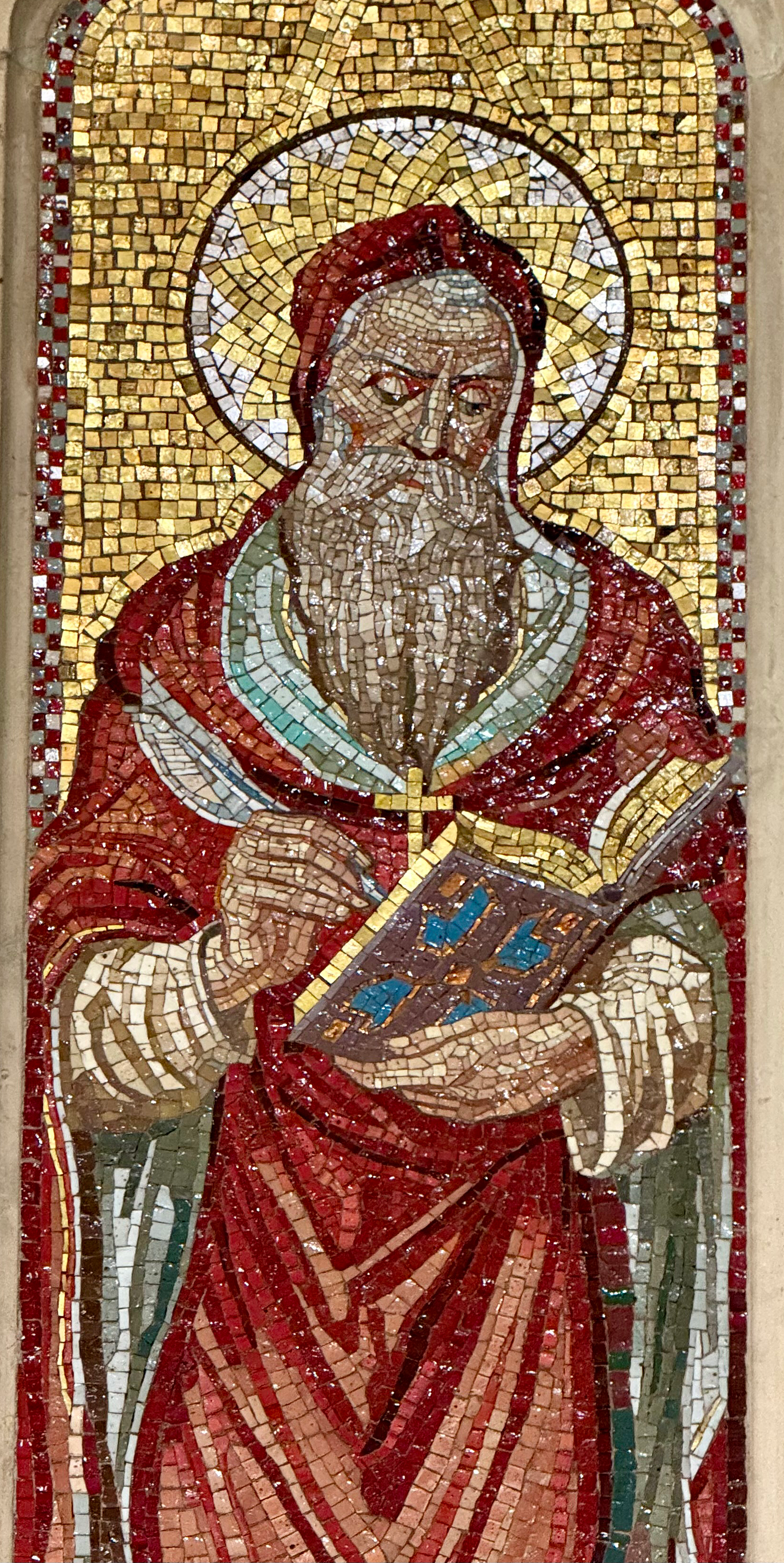Report on St. Jerome
Introduction
St. Jerome (c. 347–420 AD), one of the most significant Church Fathers in Christian history, is best known for his translation of the Bible into Latin, which became known as the Vulgate. His intellectual contributions, ascetic lifestyle, and theological writings have made him a central figure in both the Western and Eastern Christian traditions. As a scholar, theologian, and priest, Jerome played a pivotal role in shaping the development of Christian thought, particularly in the realms of scriptural exegesis and the relationship between Christianity and classical learning. Revered as a saint in both the Catholic and Orthodox Churches, Jerome’s legacy continues to influence biblical scholarship, Christian asceticism, and theology.
Early Life and Education
St. Jerome was born around 347 AD in Stridon, a town located on the border between modern-day Croatia and Slovenia. Little is known about his early life, but it is believed that he came from a wealthy Christian family. Jerome was well-educated, learning Latin and Greek, which would later aid in his theological and scholarly work. He studied in Rome, where he was exposed to the writings of early Christian Fathers, and developed a deep interest in scripture and theology.
Monastic Life and Asceticism
Jerome’s life took a significant turn when he chose to pursue an ascetic lifestyle. Around the age of 30, he retreated into the Syrian desert to live as a hermit. His years in the desert, spent in solitude and reflection, had a profound influence on his spiritual and intellectual development. These years of asceticism were formative in shaping his views on Christianity, especially his emphasis on the importance of scripture and the need for personal holiness.
The Vulgate Translation
Jerome’s most lasting legacy is his translation of the Bible into Latin, known as the Vulgate. In the late 4th century, Pope Damasus I commissioned Jerome to revise the Old Latin translations of the Bible, which were widely used but often inconsistent and inaccurate. Jerome initially began by revising the Gospels and later translated the rest of the Old Testament from the original Hebrew texts, a groundbreaking move at the time. His translation of the Hebrew scriptures was a significant departure from earlier Latin translations that were based primarily on the Greek Septuagint. Jerome’s work aimed to provide a more faithful and accurate version of the Bible.
The Vulgate became the standard Bible of the Western Church and was widely used in the Latin-speaking world. Despite criticisms from some contemporaries, Jerome’s translation was eventually embraced as authoritative. His scholarship was instrumental in making the scriptures more accessible to the Christian community and played a pivotal role in the development of Christian doctrine.
Theological Contributions
Jerome’s theological writings were prolific and varied. He engaged in extensive debates with other early Christian thinkers, such as Origen, Augustine, and Pelagius. Jerome’s staunch defense of asceticism and his deep devotion to Scripture set him apart from other theologians of his time. His letters, many of which were written to Christian women seeking spiritual guidance, provided practical advice on living a Christian life. He also wrote commentaries on various books of the Bible, including the Psalms and the Prophets, further cementing his reputation as a biblical scholar.
One of the central themes in Jerome’s theological work was his belief in the primacy of Scripture. He viewed the Bible as the ultimate authority for Christians and argued that a deep, personal engagement with the scriptures was essential for spiritual growth. Jerome also played a key role in defending the doctrine of the Trinity, engaging in debates over the nature of Christ and his relationship to God the Father.
Controversies and Criticisms
Despite his immense contributions, Jerome’s life was not without controversy. His harsh criticism of other early Christian leaders, particularly his disagreements with Rufinus of Aquileia and the monk Pelagius, led to significant theological disputes. Jerome’s writings were sometimes seen as intemperate and overly critical, and his personality was often described as combative.
His staunch asceticism, too, was controversial. Jerome frequently clashed with those who were more moderate in their approach to Christian life and often criticized women who chose to live in secular society instead of embracing a life of celibacy and religious devotion.
Later Years and Death
Jerome spent his final years in Bethlehem, where he established a monastic community and continued his scholarly work. It was here that he completed much of his biblical translation and wrote many of his letters and theological treatises. He died around 420 AD, and his feast day is celebrated on September 30.
Legacy
St. Jerome’s legacy is immense. His Vulgate translation of the Bible remained the authoritative text for the Western Church for over a thousand years and significantly shaped Christian doctrine and liturgy. His commitment to scholarly rigor and his promotion of the Bible as the central text of Christianity had a lasting impact on the development of Christian theology and Western education.
St. Jerome is also recognized as a Doctor of the Church, a title given to saints whose writings have had a significant impact on Christian doctrine. His influence extends beyond theology and into the realms of biblical scholarship, linguistics, and classical studies. Today, St. Jerome is remembered not only as a biblical scholar but also as a model of asceticism and devotion.
Conclusion
St. Jerome’s life and work encapsulate the fervor of early Christian intellectual and spiritual life. Through his biblical translations, theological writings, and ascetic practice, he left an indelible mark on the Christian tradition. His devotion to Scripture and his commitment to scholarly pursuits continue to inspire and influence theologians and scholars to this day.






